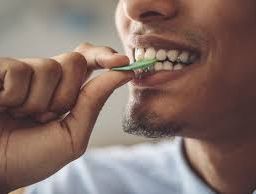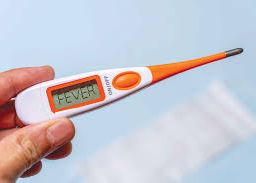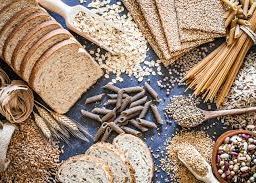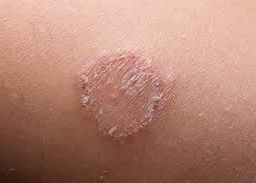
Top Prostate Health Tips for Men Over 40 and When to Seek Medical Advice
In today’s fast-paced world, understanding the nuances of prostate health has never been more crucial for men. As men age, the significance of proactive prostate health strategies becomes evident. Dive into our comprehensive guide to explore effective methods and insights for maintaining top-notch prostate health.

Maintaining good prostate health is crucial for men of all ages. However, as they age, men may face specific health challenges that require attention and proactive management. Two common issues that affect men’s health are prostate issues and testosterone levels. In this post, we will explore strategies for managing these issues and provide valuable insights into maintaining optimal health.
Understanding the Prostate
The prostate is a small gland located below the bladder in men. It plays a vital role in reproductive health by producing seminal fluid, which nourishes and transports sperm. As men age, the prostate gland can enlarge, leading to a condition known as benign prostatic hyperplasia (BPH) or prostate cancer. BPH can cause urinary symptoms such as frequent urination, weak urine flow, and difficulty starting or stopping urination. Regular check-ups and early detection are critical for maintaining prostate wellbeing. Men over the age of 50 should undergo annual prostate-specific antigen (PSA) blood tests and digital rectal exams (DRE) to detect any abnormalities. Routine health screenings are vital for early detection of potential health issues. Regular check-ups with a healthcare professional can help monitor the prostate and testosterone levels, ensuring timely interventions if needed. Additionally, maintaining a healthy lifestyle can contribute to prostate health. Regular exercise, a balanced diet rich in fruits and vegetables, and limited alcohol consumption can help reduce the risk of prostate problems.

Understanding Testosterone Levels and Prostate Health
Testosterone is the primary male sex hormone responsible for the development of male reproductive tissues and secondary sexual characteristics. Testosterone levels naturally decline with age, leading to various symptoms such as reduced libido, fatigue, decreased muscle mass, and mood changes. This condition is known as low testosterone or hypogonadism.
To manage testosterone levels, it is crucial to identify the underlying cause. Lifestyle factors such as obesity, sedentary behavior, and poor sleep quality can contribute to low testosterone. Engaging in regular physical activity, maintaining a healthy weight, and getting enough sleep can help optimize testosterone levels. Additionally, managing stress levels and avoiding excessive alcohol consumption can also have a positive impact.
Testosterone Levels: Importance and Management
Testosterone is a crucial hormone in men, influencing various aspects of their health, including muscle mass, bone density, and mood. Low testosterone levels can lead to fatigue, reduced libido, and other health concerns. To manage testosterone levels effectively, it’s vital to maintain a healthy lifestyle, including regular exercise, a balanced diet, and sufficient sleep.
Maintaining good health is essential for everyone, and men, in particular, face specific health challenges that require attention and proactive management. We will now explore effective strategies to address these concerns and promote overall well-being, empowering men to take control of their health and lead fulfilling lives.

Importance of Diet and Supplements in Prostate Health
Diet plays a crucial role in maintaining prostate health. Including foods rich in antioxidants, such as tomatoes, berries, and green leafy vegetables, can help reduce the risk of prostate issues. Additionally, consuming foods high in omega-3 fatty acids, like fatty fish (salmon, mackerel), walnuts, and flaxseeds, may have a protective effect on the prostate.
Certain supplements have also shown promise in supporting the prostate. Saw palmetto extract is a popular herbal supplement that may help alleviate urinary symptoms associated with BPH. Other supplements like beta-sitosterol, pygeum, and stinging nettle root extract have also demonstrated potential benefits for the prostate. However, it is important to consult with a healthcare professional before starting any new supplements.
Testosterone Replacement Therapy (TRT)
In some cases, testosterone replacement therapy (TRT) may be recommended to address low testosterone levels. TRT involves the administration of synthetic testosterone to restore hormone levels to a normal range. It can be administered through various methods, including injections, patches, gels, or pellets implanted under the skin.

Before considering TRT, it is essential to consult with a healthcare professional who specializes in men’s health. They will evaluate your symptoms, conduct necessary tests, and determine if TRT is appropriate for you. TRT can have potential side effects and risks, so it should only be pursued under medical supervision.
Regular Exercise for the Prostate
Regular physical activity is not only beneficial for cardiovascular health but can also contribute to a healthy prostate. Engaging in moderate-intensity exercises like walking, swimming, or cycling can help improve blood flow to the prostate and reduce the risk of prostate issues.
Natural Supplements for the Prostate
Certain natural supplements, such as saw palmetto and beta-sitosterol, have shown promising results in supporting the prostate. However, it’s essential to consult with a healthcare professional before incorporating any supplements into your routine.
Stress Management for Hormonal Balance
Stress can negatively impact hormone levels, including testosterone. Practicing stress-reducing techniques such as meditation, yoga, or mindfulness can help maintain hormonal balance and overall well-being.

Adequate Sleep for Prostate and Hormonal Health
A good night’s sleep is essential for hormonal regulation. Lack of sleep can disrupt hormone production, including testosterone. Aim for 7-9 hours of quality sleep each night to support your hormonal health.
Men’s health is a topic that deserves attention and proactive care. By understanding and addressing common issues such as prostate health and testosterone levels, men can take significant strides towards maintaining their well-being. Embracing a healthy lifestyle, including regular exercise, a balanced diet, and stress management, can significantly impact overall health and longevity. Maintaining good health is essential for men of all ages. Proactive management of the prostate and testosterone levels can significantly contribute to overall well-being. Regular screenings, a healthy lifestyle, and a balanced diet are crucial for managing prostate health. Understanding the causes of low testosterone and adopting healthy habits can help optimize testosterone levels. Remember, always consult with a healthcare professional for personalized advice and guidance on managing men’s health issues. Remember, open communication with healthcare professionals and regular health check-ups are essential for proactive management of men’s health issues. By making informed choices and taking charge of their health, men can lead fulfilling lives and enjoy their best selves at every stage of life.
Disclaimer: The information provided in this content is for general informational purposes only. It is not intended as medical or healthcare advice, diagnosis, or treatment. Always seek the advice of a qualified healthcare professional with any questions you may have regarding a medical condition or healthcare decisions.
















